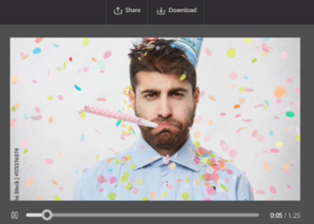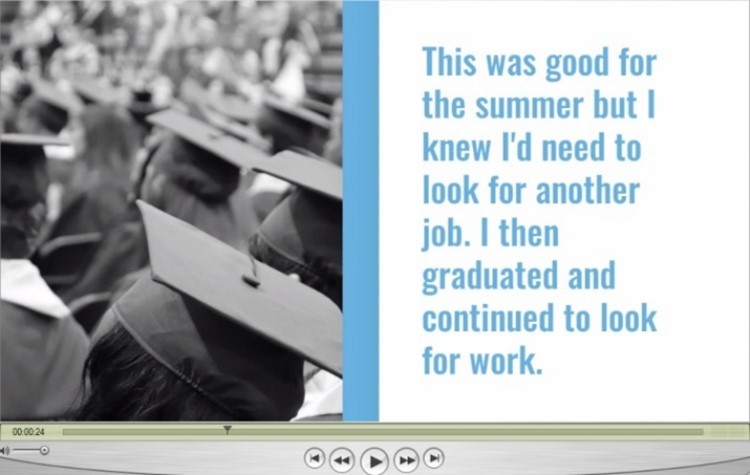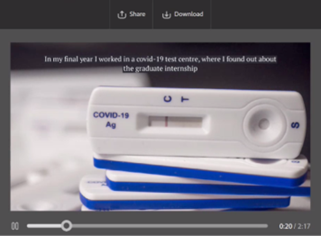Digital Storytelling Transitions from Study into Employment: Experiences of Graduate Interns 2021-2022
Overview
“In its traditional form and core function, digital storytelling refers to the process of developing personal narratives based on certain life experiences. These stories, controlled by the storyteller, incorporate a combination of text, audio recordings, images, music and animations to create short videos with a duration of typically two to five minutes” (Austen, Pickering & Judge 2021: 338)[1].
STEER have been using digital storytelling[2] to amplify student and staff voices for many years, most recently to explore the transition to undergraduate study via a Foundation Year. The current research explored transition at a different point in the student lifecycle – progression from student to Graduate Intern. This study also explored the Covid-19 challenges faced by this cohort of students.
The aims of this pilot research were to further explore the utility of the digital storytelling method in gathering student experiences and to provide a detailed analysis of the transition experience of the 2021 cohort of Graduate Interns. Ethical approval for this research was granted. The findings have been shared with key stakeholders working on this Programme and on associated interventions which aim to impact on progression to employment.
Method
The evidence was collated from 7 digital stories produced by Graduate Interns during Jan/Feb 2022. All stories were between 1-4 minutes in length and utilised a range of audio narration, personal and stock images, text captions and music. Graduate Interns were supported to create the digital stories during two training sessions provided by STEER. Two researchers from STEER thematically analysed the digital stories and then collated the evidence.
Findings
The role of the course in transitions to employment (including the impact of Covid): It is possible that students who apply for the GI Programme have had difficult experiences on their courses and were questioning whether their area of study was going to be their area of employment. The GI Programme may provide time and space to reflect and manage their future career choices whilst in employment and overcome feelings of ‘disconnection’, ‘confusion’, and ‘disappointment’.
Transition experiences: The GI Programme provides a Sheffield-based opportunity for stable, paid employment, which is attractive for students, especially those who are experiencing uncertainty in their future planning. The Interns often expressed uncertainty about what they should do after university and a similar uncertainty is expressed about what comes after the Internship Programme: they were ready for a change, but that they did not know what to do next. Location, and the importance of Sheffield as a place, was a common theme.
Career planning (including the GP Programme): The GI Programme was a positive experience for the Interns in this research, especially in comparison to previous roles. The stories reflected a sense of urgency to find employment with one GI suggesting that they had ‘applied for anything’. One GI described their applications as ‘all or nothing’, expressing a sense of desperation. The Internship has given GIs more time to think and consider alternative paths such as further study or travelling and was described as a ‘stepping stone’ to bigger things. All stories had some element of uncertainty underpinning employment decisions, although the GIs were optimistic and ambitious in their future planning. The desire for a permanent position was clear in some stories, for others, a sense of uncertainty about the future was observed. In future iterations, the Programme outcomes should consider the impact on students who have particular employment needs and reasons for participating, in addition to the development of knowledge, skills and confidence.
Liz Austen & Nathaniel Pickering, Student Engagement, Evaluation and Research
June 2022
Example digital story (shared with permission): https://express.adobe.com/video/ERNschIunhEJK
All images taken from the participants digital stories and shared with permission.
[1] AUSTEN, Liz. PICKERING, Nathaniel. & JUDGE, Marie. (2020) Student reflections on the pedagogy of transitions into higher education, through digital storytelling, Journal of Further and Higher Education, 1-12



